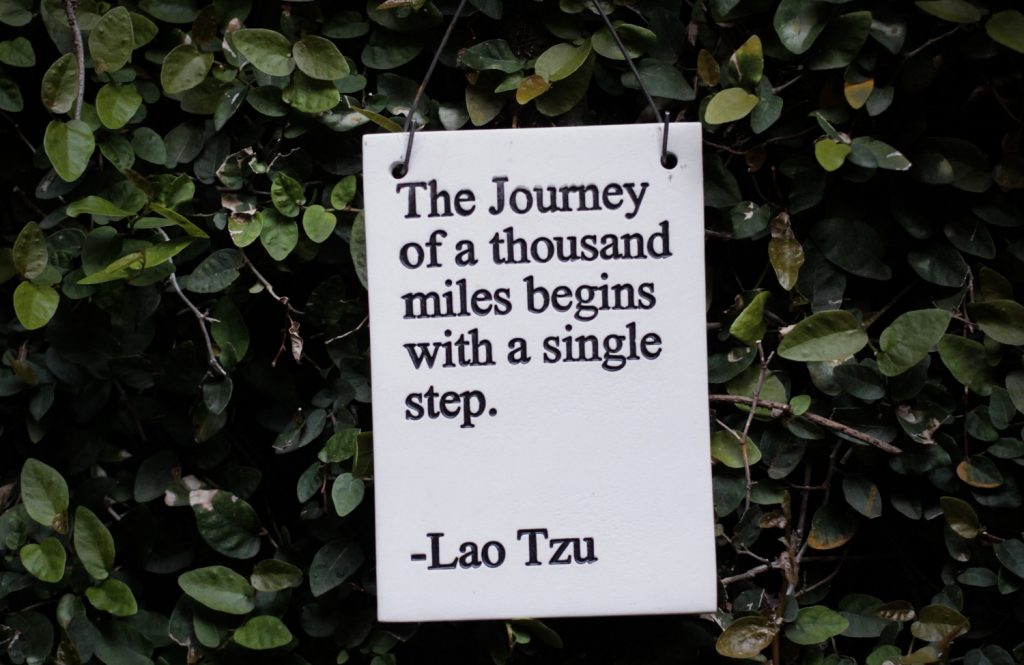A new year is here, ready or not. Some of us may be welcoming the opportunity for a reset, while others may not feel ready. The new year can bring with it the weight of expectation…for a new and improved you, they say…for goal crushing, they say. Wait, who is they? And, was there something wrong with the old me?
I’m particularly reflective on the concept of resolutions, not only due to the time of the year, but because of my profession as an organizer. Two common resolutions people have include getting in shape and getting organized. Yet, the vast majority of resolutions made are broken by February. As one small cog in a much larger wheel within the organizing space, I can only do so much. But, I do feel compelled to play a part in encouraging a mindset that will set you up for, not a new you (the current one is pretty great), but one that feels capable of making progress in your life – in whatever area you feel compelled to focus on.



Progress is always a worthy endeavor. There are many schools of thought on the “right” way to express these desires…Resolutions? Goals? Intentions? Words of the year? I don’t know that it matters all that much, as long as it’s authentic to you and is an honest reflection of what you are looking to accomplish.
Yet, there are are ways to frame up your desired growth that set you up for success, and other ways to avoid – ways that lead to discouragement and throwing in the towel. Though I’m not an expert in the new year’s resolution space, I have noticed parallels between what trips people up in terms of desired progress on their organization journeys, and what trips people up regarding progress on a bigger scale.
Here are 5 tips to help you kick off the new year on the right foot.
1. Be clear what you actually desire vs. what you think you should desire.
Many people have new year’s goals that are financial or business growth focused. But, if you feel more of a tug toward something else – even something that may appear frivolous or not as “productive”, listen to that voice. Who cares that someone has a goal to build their business to a certain level? That’s great for them, but your focus on things like being a more joyful or present parent, for example, may not be what the world appears to value, but may be more in line with what you value. And, thank goodness, you get to define what matters to you.
2. Beware of right goal, wrong time.
If you are currently in a season of a demanding work or travel schedule, caring for a newborn and other kiddos, health or relationship challenges, etc., this may not be the best time to pursue large bucket list items – ones that may take a great deal of time, focus, dedication. You don’t want to set yourself up for burnout or feeling inadequate. Neither of these things is welcome in your mindset and life for this year.
Choose something that fits where you are now. If you’re crunched for time, avoid a goal that requires additive time, such as finding an additional 60 minutes to get to the gym. Focus elsewhere, such as selecting a topic you want to learn more about, and listen to a 20 minute podcast daily while you’re doing other things like household tasks or running errands.
3. Identify your end goal AND daily habits
Does the following sound familiar…You’re excited! You’ve always wanted to learn to play the piano and THIS is the year it’s going to happen! In January, your end goal felt soooo far away…12 whole months to achieve this? Great! You’ll get around to starting soon. Before you know it, it’s April and you’ve been busy with other things. But, next month, you’re convinced, you’ll carve out time to acquire this new skill. There are still 8 months left – plenty of time! Soon it’s Oct. and you start to question everything…maybe I can’t do it, maybe it was the wrong goal, maybe I can never do it. You’re discouraged.
What’s the issue? You identified your end goal, but neglected to identify and employ regular consistent habits that set you up to achieve your end goal. The end goal was fine, you just need to SCHEDULE IN (just like important appointments) regular practice sessions of, say, 15 minutes per day. It all adds up! 15 minutes a day is over 90 hours a year, certainly enough to learn a new skill!



4. Language and mindset matters.
Instead of saying someday you’ll be a runner, for example, start identifying yourself as a runner now. You’ll be more likely to think and act out from that identity. You can still identify as a runner without being an Olympian! Kick the comparison game to the curb. It doesn’t matter that your run may be alternating between a slow jog and a walk. Progress is progress.
5. Employ habit stacking.
I love this concept. It’s simply pairing a desired new habit with a current habit. For example, if you’re working on flossing consistently, put the floss next to your toothbrush. When you brush your teeth, you’ll see the floss and start to make a habit of flossing after you brush.
Last year, I started the habit of a daily walk. Now that I’m accustomed to that, I’m stacking on to that habit with a new habit of doing some exercises when I get home. Following through becomes easier because I’m already wearing workout clothes from the walk, and I’m in active mode already.
Also, in 2022 I had a daily goal to read 2 pages of a particular lengthy book. A mere 2 pages per day taking approx. 10 min. was enough for me to finish the book! Since I already have the habit of daily reading, I simply swapped the book out with another one for 2023, taking advantage of my existing habit, without needing to find any additional time in my day. What habits do you want to start this year?
This is achievable for everyone! No goal is too small. You have what you need to make the most out of the year. You can, concurrently, hold the belief that you are enough now, while also looking to explore new interests or progress in specific areas. Let’s make it a great one!





